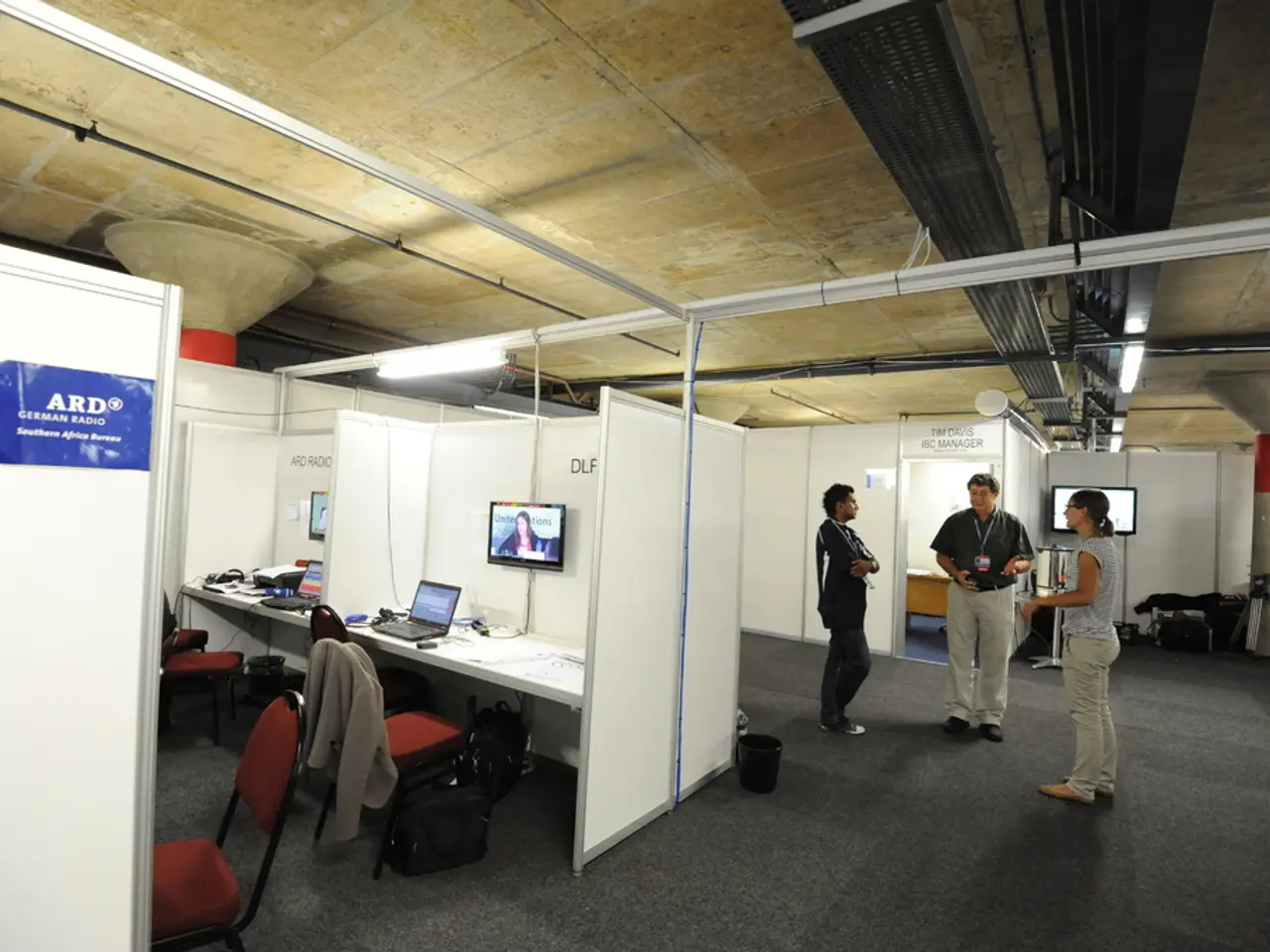Unveiling Hidden Strengths in Private Industries
Vietnam's Resolution No. 68-NQ-TW, issued by the Politburo on May 4, 2025, marks a significant shift in the country's economic policy. This landmark policy places the private sector, including small- and medium-sized enterprises (SMEs), at the core of Vietnam's socialist-oriented market economy and national development [1][2][3].
Specific Details of Resolution No. 68-NQ-TW Related to SMEs
Private Sector Growth and Support
The Resolution aims to boost the private sector with comprehensive mechanisms and policies encouraging entrepreneurship, new business registrations, and the resumption of operations for dormant companies. In the first seven months of 2025 alone, nearly 108,000 new enterprises were established, with capital injections reaching US$91.62 billion, indicating rapid expansion largely benefiting SMEs [1].
Financial Facilitation
The Resolution seeks to improve SMEs’ access to finance, enabling them to mobilize capital more effectively. This is expected to ease investment and operational constraints faced by private firms, especially smaller ones [1][2].
Access to Essential Services and Support
A key focus is to improve SMEs' access to essential services, including technology, innovation support, consultancy networks, and tailored administrative services. For example, initiatives such as creating networks of consultants to assist innovative startups and SMEs in provinces demonstrate the policy’s implementation to provide practical support frameworks [4].
Fostering a Green, Circular, and Sustainable Economy
Resolution 68 explicitly positions the private sector, including SMEs, as central participants in Vietnam’s green transition and circular economy efforts. It aligns with national goals to promote sustainable industrial practices, clean technology adoption, and eco-innovation, encouraging SMEs to contribute actively to environmental sustainability. This commitment marks Vietnam’s intention to integrate private economic growth with environmental responsibility [2].
Impact of Resolution No. 68-NQ-TW on SMEs
| Aspect | Details | Impact on SMEs | |--------------------------|---------------------------------------------------------------------------------------------|----------------------------------------------------------------------| | Finance | Policies facilitate capital access and injection, backed by government plans with multiple agencies involved[1][2] | Easier capital mobilization, supporting startup creation and business expansion. | | Access to Essential Services | Establishment of support mechanisms such as consultant networks and innovation support[4] | SMEs can overcome expertise and operational barriers with expert guidance. | | Green, Circular Economy | Private sector recognized as a driving force in sustainable development and green innovation[2] | SMEs encouraged and enabled to adopt eco-friendly technologies and participate in circular economy initiatives. |
Supporting Context
Since adoption, Vietnam's private sector, including many SMEs, has experienced significant growth: over 536,000 new business households registered in seven months, a 165% annual increase, with a surge in capital mobilization and resumed operations [1]. The Government assigned 11 ministries and agencies to lead 56 implementation tasks with additional action plans to ensure the resolution's policy goals are met by the end of 2025 [1]. Resolution 68 is part of a broader series of reforms, building an enabling ecosystem for private enterprises through innovation, legal improvements, and economic integration [3].
In summary, Resolution No. 68-NQ-TW offers a comprehensive framework aimed at financially empowering SMEs, enhancing their access to innovative and administrative services, and integrating them into Vietnam’s green and sustainable economic development. Its implementation is driving tangible positive outcomes in enterprise creation, capital access, and private sector dynamism across the country [1][2][4].
Further Support and Inspiration
Resolution 57 introduces incentives to support enterprise investment in research, development, and technological innovation. Vietnam can learn from successful ASEAN models like Singapore's Financing Asia's Transition Partnership and Indonesia's SDG One Fund. Many businesses in Vietnam are already embracing circular economy principles, inclusive business models, and social impact businesses. The private sector holds the key to unlocking Vietnam's sustainable development future and expanding access to innovative finance.
In light of Vietnam's Resolution No. 68-NQ-TW, the business sector, particularly small- and medium-sized enterprises (SMEs), is expected to witness growth due to comprehensive mechanisms and policies encouraging entrepreneurship and new business registrations [1]. Furthermore, the Resolution aims to enhance SMEs' financial capabilities by improving their access to capital, facilitating smoother investment and operational processes [1][2].




